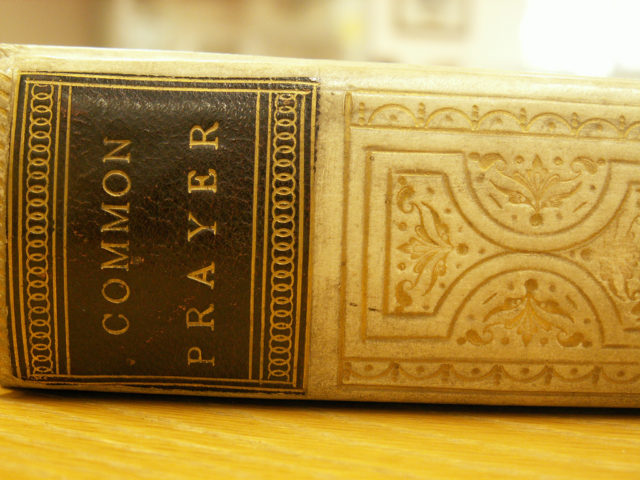At the last General Convention, the process to begin thinking about a revision of the Book of Common Prayer was put in motion. The Standing Committee on Liturgy and Music (SCLM) was tasked with proposing a plan for revision by passage of Resolution A169
Resolved, the House of Deputies concurring, That the 78th General Convention direct the Standing
Commission on Liturgy and Music (SCLM) to prepare a plan for the comprehensive revision of the
current Book of Common Prayer and present that plan to the 79th General Convention;
Yesterday, in response to that directive the SCLM outlined the four possible paths it will be presenting to the next General Convention in 2018 to consider. They are:
- Revise Book of Common Prayer
- Create Book(s) of Alternative Services, and leave the BCP 1979 alone
- More talking, listening, researching, and discerning
- Deepening our relationship with the 1979 BCP
In addition, the SCLM adds, General Convention 2018 could choose to combine path #2, #3, or #4 with another option, which is to develop “technical fixes” to the 1979 Book of Common Prayer. Technical fixes are adjustments in grammar, punctuation, and word choice that do not change the theology, poetry, or intended meaning of the text. (for example: in Eucharistic Prayer C – changing “you made us the rulers of creation” to “you made us the stewards of creation” or adding the matriarchs along with the patriarchs). The SCLM will offer to General Convention 2018’s consideration a clear and detailed definition of the meaning of “technical fixes” and a list of specific examples.
Response on social media has been mixed, though there seems little desire for the wholesale revision of proposal #1 akin to the previous revison of the 1970’s. Examples gleaned were:
“O by the bowels of Christ, let it be #4. #1 will lead to a monstrosity that devastates the Church even more than ’79 did ”
“I could live with anything other than #1. While #4 is the option that represents my sentiments, I wonder whether #2 might be the wisest course of action. ”
“no revision is required. Don’t waste money on this.”
“Oh no, not again!”
To provide some historical context, the Episcopal Church first revised the prayer book inherited from the church of England (1662) shortly after its creation in 1789. This first American prayer book was largely the work of Bishop William White and was essentially the 1662 BCP with a different communion service based on the one used by the Scottish Episcopal Church and omitting prayers for the king. In 1892 the book was again revised, but the changes were not extensive which likely was an important factor driving the desire for a more extensive change that resulted in the revision of 1928. The 1928 version included many language updates and a new translation of Psalms, and “Love, honor, and obey” was dropped from the bride’s vows in the service of Holy Matrimony.
To a large extent, the driving force for this revision was to include the changes wrought from the passage of marriage equality and a desire for those marriage liturgies to be part of the BCP. There have also long been calls for more inclusive language options as this version was approved just prior to that issue coming to the fore. We asked a year ago your thoughts on revisions and alterations for the prayer book; but we’ll ask again. What are your thoughts on revision? Are there non-negotiables for you, what are they? What absolutely needs to be changed or deleted? And is this really where the church needs to put its energy for the next ten to twelve years or are there more pressing issues? Please share below, but also please be kind to one another.

